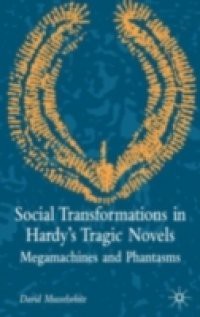Drawing on the theoretical work of Giles Deleuze and Felix Guattari and of Jean Laplanche and J.B. Pontalis - particularly their major but as yet relatively unfamiliar notion of the phantasme - this new study offers a number of highly original and thought-provoking readings of Hardy's four major tragic novels - The Return of the Native, The Mayor of Casterbridge, Tess of the d'Urbervilles and Jude the Obscure. The four novels are studied in terms of the typology of social formations set out by Deleuze and Guattari in their Anti-Oedipus and A Thousand Plateaux - territorial, despotic and capitalist formations in the former, different regimes of signs in the latter. The close readings show that in each of these novels Hardy's problematic is dominated by a powerful phantasmal presence which in each case reveals disconcerting and troublesome aspects of Hardy's creative vision.While the initial methodological premises may appear to be daunting, they are deployed in the reading of work with which the reader is familiar ensuring that even the most complex notions are accessible. Although the prime concern is with the novels, it is likely that the reader will find his or herself familiar and at ease with a body of what was formerly considered to be quite intimidating and intractable theoretical material.

